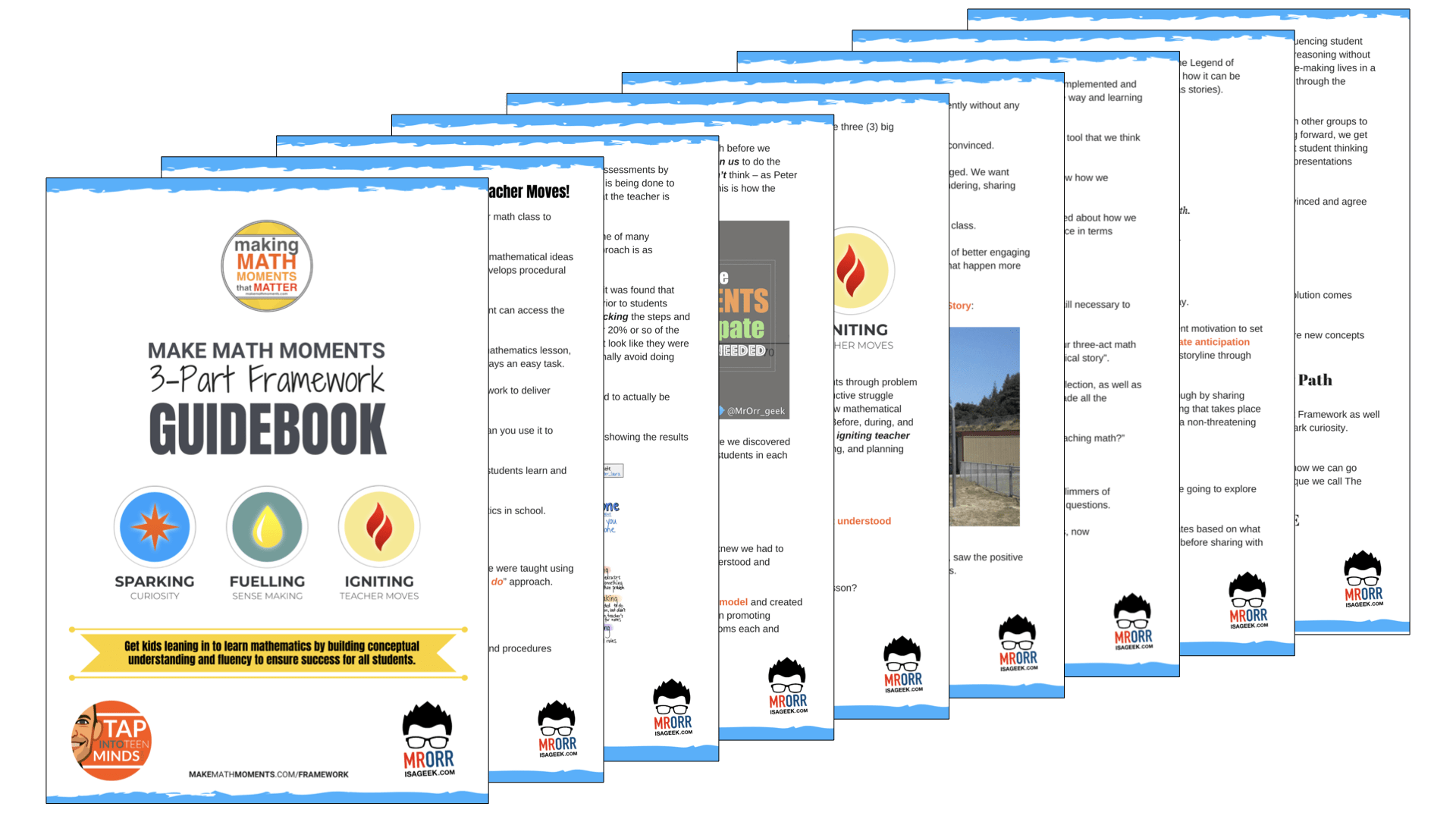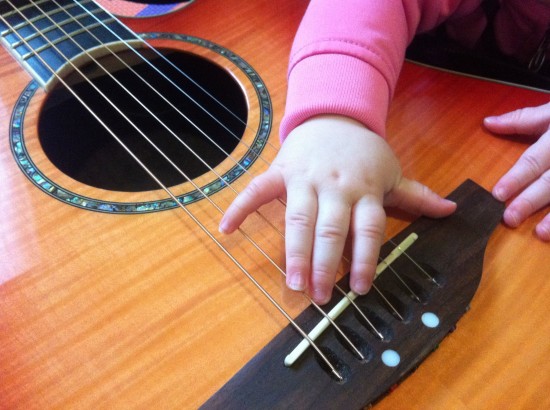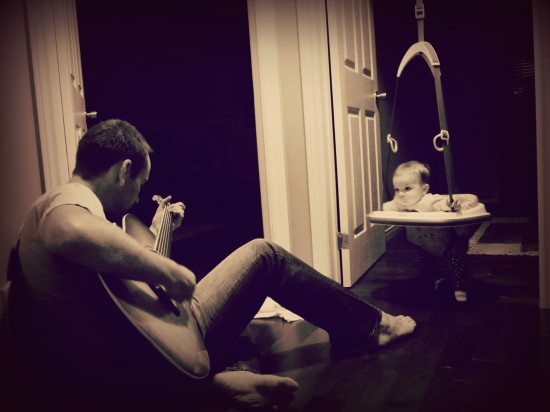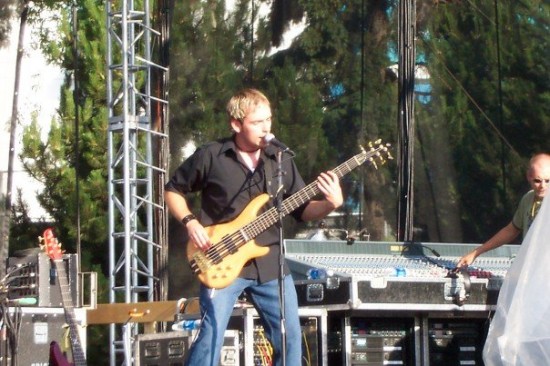Learning Math Was Boring, But So Was Learning The Guitar
Throughout school, I was very interested in music. When my parents finally agreed to get me a guitar in grade 6, we also agreed that I should be taking some music lessons. I imagine that when you pick up an instrument for the first time as an adult, it’s a little different, and you wonder what the best way to go about learning it is – on your own, or with a teacher. You might even read guides like this https://www.agmarketnetwork.net/whats-better-learning-music-as-self-taught-or-with-formal-education/ to help you make up your mind. As a kid, however, formal lessons definitely seem to be the way to go. I would bring my black Japanese Fender Stratocaster copy to the house of my guitar teacher each week for my 30 minute lesson. My teacher, Gary had a beautiful Gibson Chet Atkins Signature guitar that was worth at least a two-digit multiple of what my Strat copy could be pawned off for. He had a passion for bands responsible for creating Rock n’ Roll like The Beatles, Rolling Stones, The Doors and countless others that I had never heard of at the time. While I dying to play Enter Sandman by Metallica, I was stuck learning songs like 8 Days a Week and Riders on the Storm. Music is great and kids can also learn from music so if you would like to check out some music clips online then you should check out the boo boo song nursery rhyme, which is a great way for kids to engage in learning whilst having fun! Although I now have a huge respect for the amazing music created by Chicago, Peter Frampton and Elvis, teaching me to read music and single-pick the melodies to songs he was passionate about completely deflated my excitement bubble and my dedication to practicing guitar decreased drastically. My weekly practice regimen consisted of trying to play a couple songs from the radio on my own while completely ignoring my “guitar homework” assigned by Gary until about 45 minutes prior to the lesson.
Photographer: Kim Pearce
Traditional Approaches Exist In All Areas of Learning
Not only did he have me playing songs he liked, but he was also pretty traditional in his teaching style. Each lesson consisted of me strumming each chord we had been working on from the past, four times, from my chord list until we reached the end. He would then introduce a new chord, which he would manually write in my book and then I would strum repeatedly until I could get buzzing strings to subside, allowing a beautiful sound to surface. We would then pop-in my practice cassette tape of chord progressions that he would record for me each week and I would “perform” my single-note melodies for each assigned song. If it went decently well, I would sit and watch as he recorded the chord progression of the next assigned song on my cassette. If it went poorly, that song would stay on the homework list to continue working on for the next seven days.
Learning Music Like We Learn Math
While his assessment practice was pretty forward thinking (i.e.: don’t move on until you’ve mastered a song), the format of each lesson was somewhat reminiscent of a traditional math class. If you’re not immediately seeing the similarities, here’s what I see:
- Covering Content Suited To The Teacher’s – Not The Student’s – Passion
- Content Exploration Requires New Skills Rather Than Requiring New Skills to Explore Content
- Wasting Time Creating The Resource
- Assigning Homework Rather Than “Real Work”
I’m sure there are some other similarities that I’ve missed, but these are definitely my top six. Let’s look at them more closely and discuss where they are likely to interrupt the learning process:
1. Covering Content Suited To The Teacher’s – Not The Student’s – Passion
We see this problem in most classrooms regardless of the subject. The teacher standing at the front is passionate about the content, which is a huge asset when teaching, but not enough attention has been dedicated to helping the students understand where this passion came from. In the case of my guitar teacher, he missed an opportunity during the first lesson to be an inspiring guitar teacher when I told him my favourite band was Metallica. Rather than me going home with the brunt of the homework that week, he should have been familiarizing himself with the Metallica catalogue so we could work towards learning the songs that inspired me to pick up a Ibanez AC240 guitar in the first place. We have a similar opportunity when we teach math to our students. We can introduce isolated tasks because that’s what the curriculum says, or we can find ways to inspire students to become as passionate about math as we are by harnessing the natural curiosity we seem to lose in traditional classrooms.
2. Content Exploration Requires New Skills Rather Than Requiring New Skills to Explore Content
Math classes are notorious for teaching concepts in order to solve “word problems” or more complex problems that combine more than one concept. However, many music classes are organized in a similar manner: learn new scales, chords, or required theory prior to introducing the piece that will require them. It seems completely reasonable that having the skills to take on a task would make completing that task easier and require less time, but I wonder if learning those skills would require less time if the learner had a clear understanding as to why they were learning the skill in the first place? Whether you’re learning a new chord by strumming it repeatedly to a 4/4 beat or completing the square 50 times without a clear purpose, I think learning both would be expedited if an authentic task was associated with each.
3. Wasting Time Creating The Resource
In most classrooms, kids copy notes. In my guitar lessons, I watched as my guitar teacher taped me my practice songs.
Sure, some things are good to “write out,” but most are not. So whether students are watching you write notes, copying examples, or watching someone record you a practice cassette tape for your homework, we are wasting valuable time. Enough said.
4. Assigning Homework Rather Than Real Work
Those of us who actually did our homework when learning math in school quickly recognized that each day consisted of a rather large set of uninteresting problems. Some kids love the challenge and thrill of getting a question right, while others just plugged away to get it done. I approached homework the same way for math as I did for my guitar lessons: get it done as fast as you possibly can. In both cases, I think assigning “Real Work” would have encouraged me to think more about what I was doing and in turn, lead to more purposeful practice. An authentic task in math requiring me to find an example from around my house or learning a song that had already been listening to in my “Discman” could have done the trick.
Learning Should Not Induce Yawning Attacks
Many would picture sitting in math class as a memory of why school was so boring. However, when I think back to my guitar lessons, I get the same immediate urge to yawn.
In both cases, math class and guitar lessons, I learned enough to get by. I’m now a secondary math teacher/instructional coach and I did pay for much of my University tuition by singing/playing bass in a working cover band for the better part of a decade. While it might appear that I learned all I needed in both areas through a traditional and uninteresting approach, I realize now that I did not have a deep understanding in either area. In my second year of university, a professor told me I was in the wrong program because I didn’t know anything about math. In my band days, I eventually realized that I could cover almost any song, but lacked the deep understanding of my instrument to compose music myself.
Reflecting
Whether we are teaching students how to play an instrument or learn a subject like mathematics, we need to take time to reflect on our teaching practices by asking:
Are we preparing students to memorize the work of someone else or are we enabling them to be creators of their own understanding?
WANT TO LEARN HOW TO TEACH THROUGH TASK?

Share With Your Learning Community:

About Kyle Pearce
I’m Kyle Pearce and I am a former high school math teacher. I’m now the K-12 Mathematics Consultant with the Greater Essex County District School Board, where I uncover creative ways to spark curiosity and fuel sense making in mathematics. Read more.
Read More From The Blog




Excellent piece, and mirrors a similar experience I had from the instructor’s side. I could speak volumes but would just draw a couple of distinctions — I think most 11-12-year-olds probably have some visualization about things like rockstar or spacepilot roles, whereas I can’t remember anyone thinking that mathtematician was a big deal. Goes to motivation. I also had the opposite happen to me, where I tried to take on a student who wanted to play hardcore/metalcore with me being the classic blues-rocker type. I made the effort to learn some metal licks and tried to get my student to get them pretty much by rote, without any theory or the requisite guitar skills, because that’s how he wanted to learn. I also noticed that the Dad’s tastes ran closer to mine, so we tried to compromise and learn a bit of rock, but it ended up boring everybody. In the end I did most of the learning, not just a new genre that I learned to play (!) but also a lot about the dynamic you describe. How to translate that into the math classroom, or any other subject? So my best tween visualization was about WW2 fighter pilots. I became quite the expert, read a lot of books an could rattle off most the the makes and models and some of the major air campaigns. Of course, I never saw the pilots having math skills, engineering or mechanical knowledge. Today’s pilots are pretty much aerospace engineers and technical wizards. The key would have been a mentor who actually worked in the industry explain the facts and then stay on my backside to keep me on course. What do teachers expect their students to do with the material, and how does it guide their practice?
Thanks for the comment!
It can be really difficult as a teacher in any subject area. Often, we have the false belief that what is interesting to us, will be interesting to those we teach. We are all so different that it is highly unlikely that the majority of our students are in our classes because they want to be. We really need to find ways to engage our students by leveraging their natural curiosity.